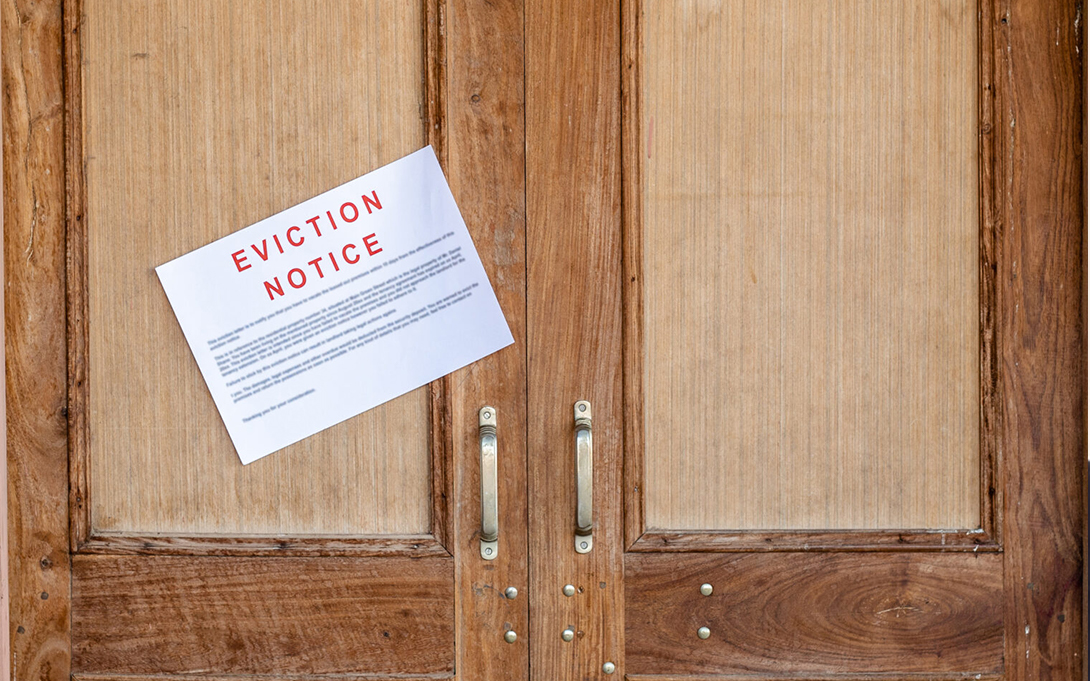
With pandemic-era protections expiring, eviction filings in Detroit rose from historic lows to 75% of the pre-pandemic rate as of June. At the current filing rate, 21% of Detroit renters—61,000 tenants—will face the threat of eviction this year.
University of Michigan researchers analyzed data from nearly 68,000 eviction case records filed in Detroit's 36th District Court between January 2019 and June 2022 to note trends in eviction filings during the pandemic and make projections for the rest of 2022.
"In Detroit and cities like it, COVID-19 eviction response measures disrupted a status quo of unjust and unmitigated mass displacement," said Alexa Eisenberg, postdoctoral research fellow at U-M's Poverty Solutions initiative. "The policy changes early in the pandemic showed us evictions are preventable but inevitable within a system that prioritizes landlords' investment interests over tenants' health and human right to shelter."
Eisenberg and Katlin Brantley, a graduate student research assistant at Poverty Solutions, co-authored a new policy brief based on data from the Eviction Machine, an organizing, advocacy and research tool that was developed by the Urban Praxis Workshop with support from Poverty Solutions and Data Driven Detroit.
Tenants' access to legal counsel increased during the pandemic, according to the court data. However, only 1 in 5 tenants had full legal representation, and landlords were four times more likely than tenants to have attorneys. Fully funding and implementing the city of Detroit's Right to Counsel ordinance would help address this disparity, but city leadership has yet to do so despite the ordinance's October start date.
The researchers propose a thorough and transparent evaluation of the Right to Counsel program that centers the perspectives of tenants to monitor whether high-quality legal representation for people facing eviction is guaranteed in practice, not only in policy.
The research also found default judgments against tenants who did not appear in court remained the primary cause of eviction, occurring in 24% of all closed cases after the onset of COVID-19. Default judgments declined 44% during the pandemic, since the 36th District Court began holding hearings virtually and the Michigan Supreme Court required courts to conduct pretrial hearings to give tenants facing eviction more time and information before starting the trial process.
"We see a drop in default evictions when tenants face fewer barriers and have more opportunities to meaningfully participate in court proceedings," Brantley said. "To further reduce default evictions, the court could raise the burden of proof required from landlords to justify the eviction, regardless of whether the tenant is able to appear in court."
Eviction Machine data shows nearly 9 in 10 pandemic-era eviction filings involved properties operated by landlords in violation of the city of Detroit's rental ordinance, despite the law stating that landlords may not occupy rental units or collect rent without a Certificate of Compliance.
Researchers also noted a stark increase in evictions filed for termination of tenancy since the start of Michigan's COVID-19 Emergency Rental Assistance program. CERA's rent assistance could not prevent termination of tenancy evictions, creating a legal loophole for landlords who opted not to participate due to program delays or to seek higher-paying tenants. Termination of tenancy cases comprised 17% of cases filed before the CERA program began in April 2021 and 29% after—an increase of 70%.
To prevent evictions, the researchers recommended enforcing Detroit's rental ordinance, reducing no-cause evictions by passing "just cause" and "right to renew" laws that better protect tenants against arbitrary or retaliatory evictions, banning evictions during the winter and during the school year for households with children, and establishing an eviction diversion program based on successful models in other cities.
"Eradicating the U.S.'s racially unjust eviction crisis will require policymakers to work alongside organized tenant movements to realize their visions for housing justice," Eisenberg said.
Learn more about this research at a virtual event with Q&A at noon Nov. 17 featuring Eisenberg and Tonya Myers Phillips, director of community partnerships & development at the Sugar Law Center for Economic and Social Justice in Detroit, with moderator Margaret Dewar, U-M professor emerita of urban and regional planning.
Read the policy brief, A Public Health Crisis, Not a Property Dispute: Learning from COVID-19 Eviction Response Measures in Detroit.
This article was written by Lauren Slagter of Poverty Solutions and Jared Wadley of Michigan News.
